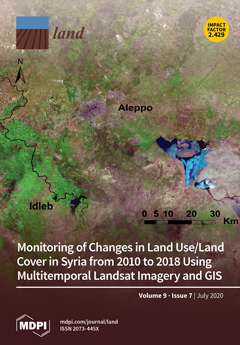Resource information
Food is wasted throughout the entire food supply chain—from agricultural production to the household level. This has negative impacts on natural resources and the environment. At the same time, food waste is undermining the global target of food security. In turn, reducing food waste can minimise the environmental effects of agriculture on climate, biodiversity, soils, water bodies and the atmosphere. All of this is reflected in the fact that food waste is subject to various legal acts of the European Union and that it is also a major subject in the new EU Farm to Fork Strategy from May 2020. Supported by an analysis of the diffuse empirical data on food waste, the purpose of this article is to analyse the current EU legislation on food waste and its reduction to answer the following research questions: How is food waste integrated into European policies? What is the impact of European legislation on food waste? Is European legislation sufficient to trigger not only food waste reduction but also comprehensive changes in the agricultural and food sector to support global climate and environmental targets as set in the Paris Agreement and the Convention on Biological Diversity? Which instruments are the most suitable to do so? Methodologically, a qualitative governance analysis is applied. It is found that relevant legal acts for governing food waste include circular economy and waste law, the Common Agricultural Policy and the Common Fisheries Policy as well as food law, while international environmental targets serve as an overarching measure for governance analysis. The legal analysis shows that existing legislation lacks steering effect to significantly reduce food waste. To overcome current governance problems, the article introduces economic policy instruments. It is concluded that quantity control focusing on overarching parameters such as fossil fuels or animal-derived products has not only the potential to reduce food waste by increasing food prices but can also address the multiple interlinked environmental challenges of the agricultural and food sector.


